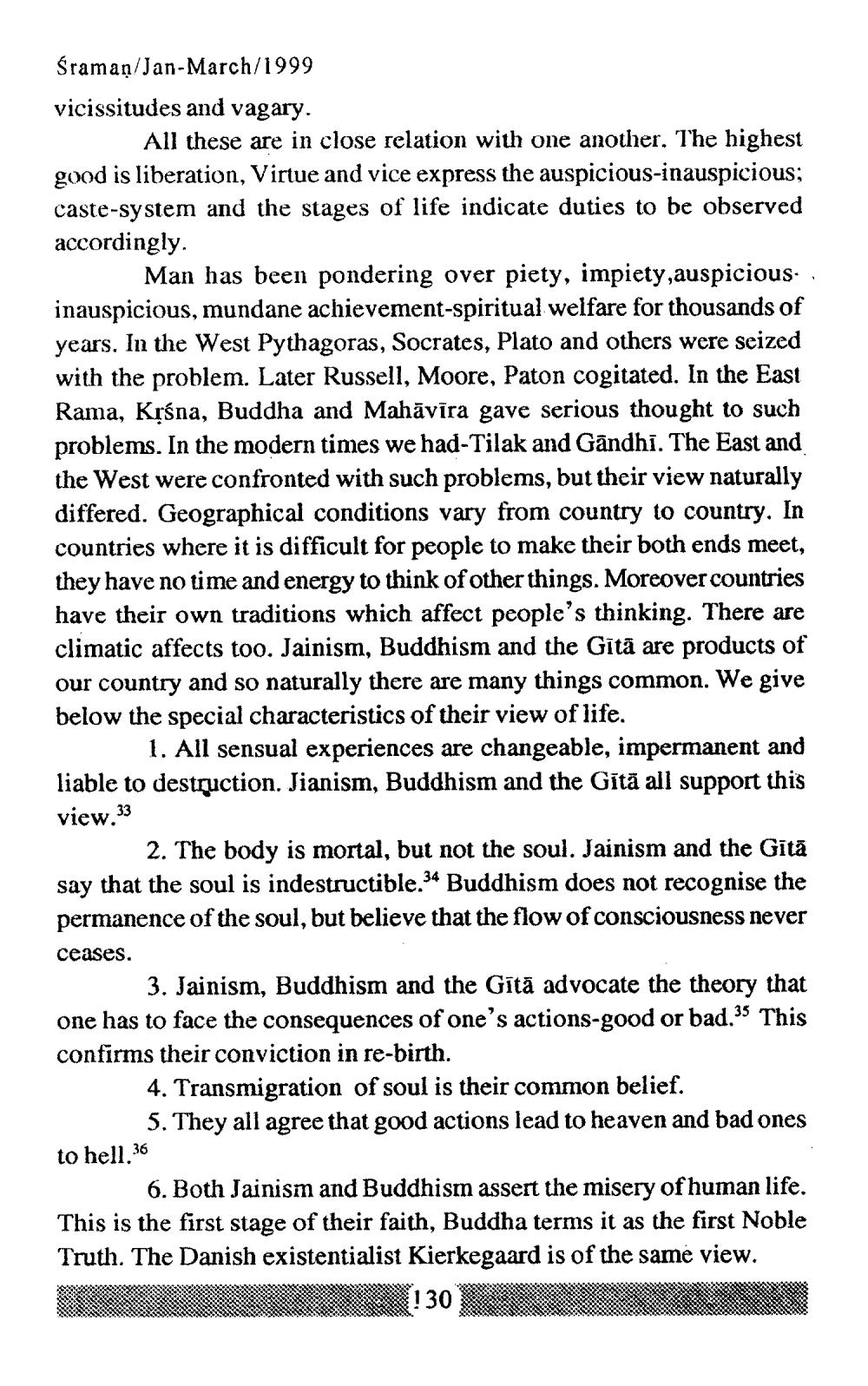________________
Śraman/Jan-March/1999 vicissitudes and vagary.
All these are in close relation with one another. The highest good is liberation, Virtue and vice express the auspicious-inauspicious; caste-system and the stages of life indicate duties to be observed accordingly.
Man has been pondering over piety, impiety,auspicious. inauspicious, mundane achievement-spiritual welfare for thousands of years. In the West Pythagoras, Socrates, Plato and others were seized with the problem. Later Russell, Moore, Paton cogitated. In the East Rama, Kļśna, Buddha and Mahāvīra gave serious thought to such problems. In the modern times we had-Tilak and Gāndhi. The East and the West were confronted with such problems, but their view naturally differed. Geographical conditions vary from country to country. In countries where it is difficult for people to make their both ends meet, they have no time and energy to think of other things. Moreover countries have their own traditions which affect people's thinking. There are climatic affects too. Jainism, Buddhism and the Gītā are products of our country and so naturally there are many things common. We give below the special characteristics of their view of life.
1. All sensual experiences are changeable, impermanent and liable to destruction. Jianism, Buddhism and the Gitā all support this view.33
2. The body is mortal, but not the soul. Jainism and the Gitā say that the soul is indestructible.34 Buddhism does not recognise the permanence of the soul, but believe that the flow of consciousness never ceases.
3. Jainism, Buddhism and the Gītā advocate the theory that one has to face the consequences of one's actions-good or bad.35 This confirms their conviction in re-birth.
4. Transmigration of soul is their common belief.
5. They all agree that good actions lead to heaven and bad ones to hell. 36
6. Both Jainism and Buddhism assert the misery of human life. This is the first stage of their faith, Buddha terms it as the first Noble Truth. The Danish existentialist Kierkegaard is of the same view.
! 30




